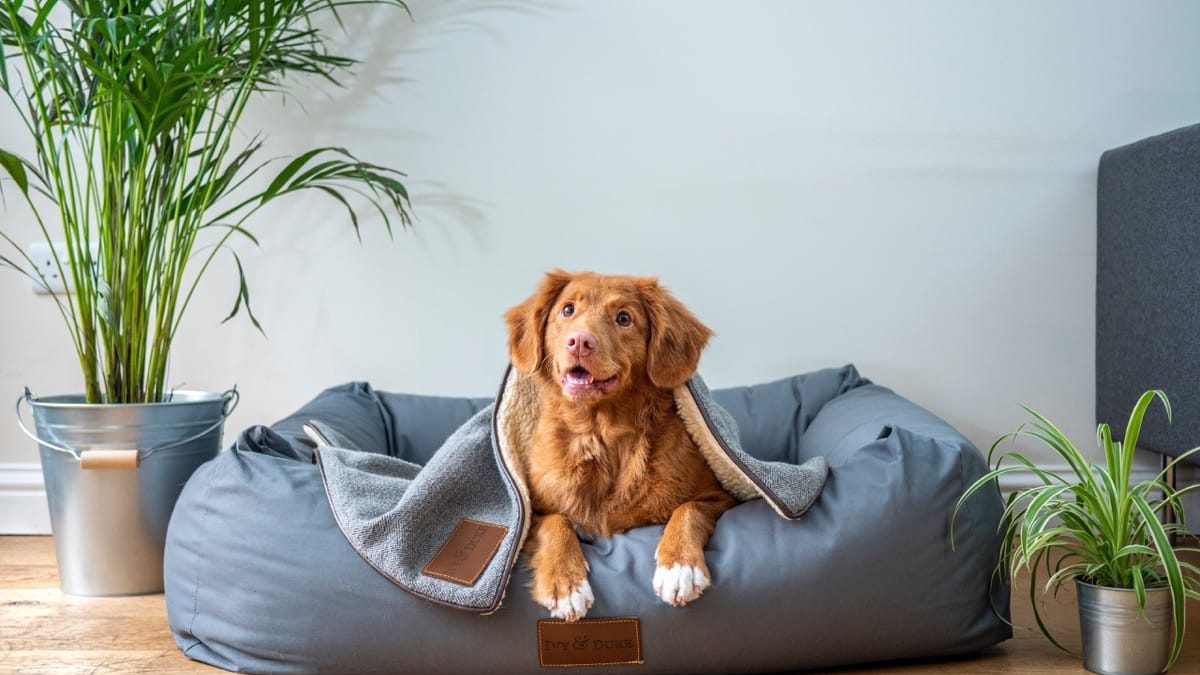
Mystery of Sleep Howling in Dogs
Dogs are notorious vocal creatures, with a symphony of barks, whines, and woofs at their disposal. But have you ever heard your furry friend serenade you from the realm of dreams? If so, you’re not alone. Sleep howling, while occasionally startling, is a surprisingly common canine behavior. But why do dogs howl in their sleep, and should you be concerned? Unbuckle your leash and join us as we unravel the fascinating mystery behind this nighttime chorus.
Dreaming Wolves: A Historical Howl-back
Dog ancestry plays a crucial role in understanding their vocal quirks. Wolves, their wild cousins, rely on howling for communication, pack bonding, and marking territory. This deeply ingrained behavior echoes in domesticated dogs, even when slumber claims them. Imagine your pup, nestled in her cozy bed, dreaming of ancestral chases and moonlit howls. That deep-seated instinct to vocalize weaves into her sleep cycle, resulting in the eerie yet captivating sleep howls we witness.

Dreamland Decoding: Interpreting Sleep Vocalizations
While the why can be explained by history, the what your dog is “saying” through her sleep howls remains a bit blurry. Some potential interpretations include:
- Happy Hunting Grounds: Your dog might be reliving a successful chase or enjoying the camaraderie of a virtual pack, prompting joyous howls.
- The Nightmare Factor: Just like us, dogs experience the emotional rollercoaster of dreams. A scary scenario could trigger whimpers, barks, or even mournful howls.
- Physiological Triggers: Pain or discomfort, even if subtle, can manifest in vocalizations during sleep.
Should You Worry? When Sleep Howling Requires Attention
While occasional sleep howls are normal, be mindful of certain red flags:
- Excessive Frequency: If howling becomes a nightly occurrence, it could indicate underlying stress, anxiety, or even physical discomfort.
- Distressed Vocalizations: Howls accompanied by whimpers, yelps, or body language suggesting fear might be a cry for help from a bad dream.
- Physical Symptoms: Look for signs of pain or illness, like limping, lethargy, or changes in appetite, alongside the howling.
Soothing the Sleep Symphony: Calming Your Howling Hound
If your dog’s sleep howls are causing concern, here are some tips to promote restful slumber:
- Create a Calm Environment: Provide a quiet, comfortable space for your dog to sleep, away from noise and disruptions.
- Tire Them Out: Regular exercise helps burn off energy and promotes deeper sleep, minimizing nighttime vocalizations.
- Establish a Routine: Consistent mealtimes, walks, and playtime can reduce stress and create a sense of security, contributing to peaceful sleep.
- Seek Professional Help: If howling is accompanied by unusual behavior or physical symptoms, consult your veterinarian to rule out any underlying health issues.
Embrace the Music: Finding the Beauty in Sleep Howling
While sleep howls can be puzzling and sometimes unsettling, remember they’re a natural expression of your dog’s inner world. Embrace the unique music your furry friend creates in their dreams, and see it as a window into their emotional landscape. With a little understanding and some gentle guidance, you can ensure your canine companion enjoys restful slumber—and perhaps even compose some truly memorable dream symphonies.
Additional Tips:
- Consider recording your dog’s sleep howls. It can be a fun way to document their quirky behaviors and share with fellow dog lovers.
- Remember, not all dogs howl in their sleep. Some breeds are naturally more vocal than others.
- Enjoy the mystery! While we may never fully understand the language of dreams, appreciating the unique expression of our canine companions adds to the joy of sharing our lives with them.



